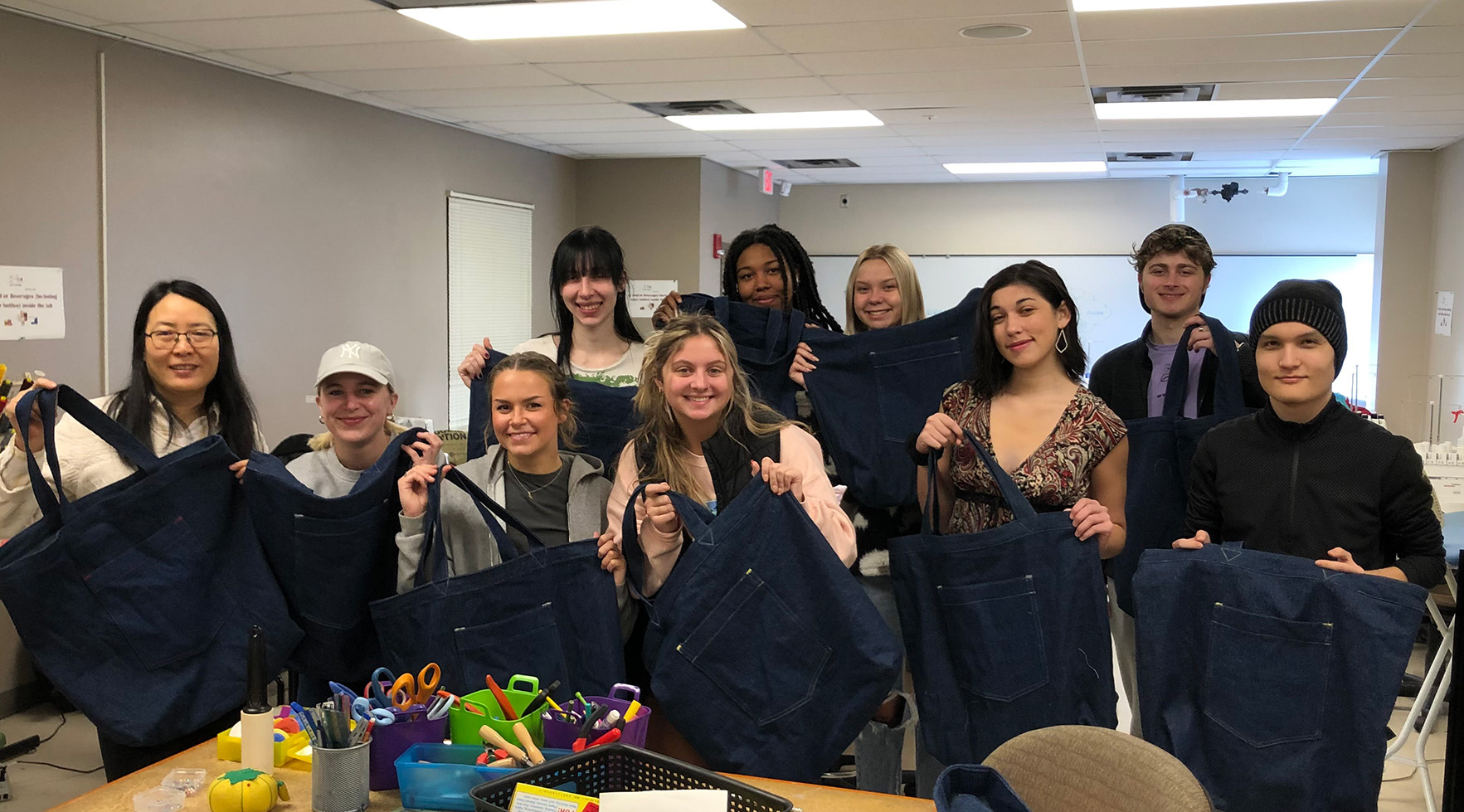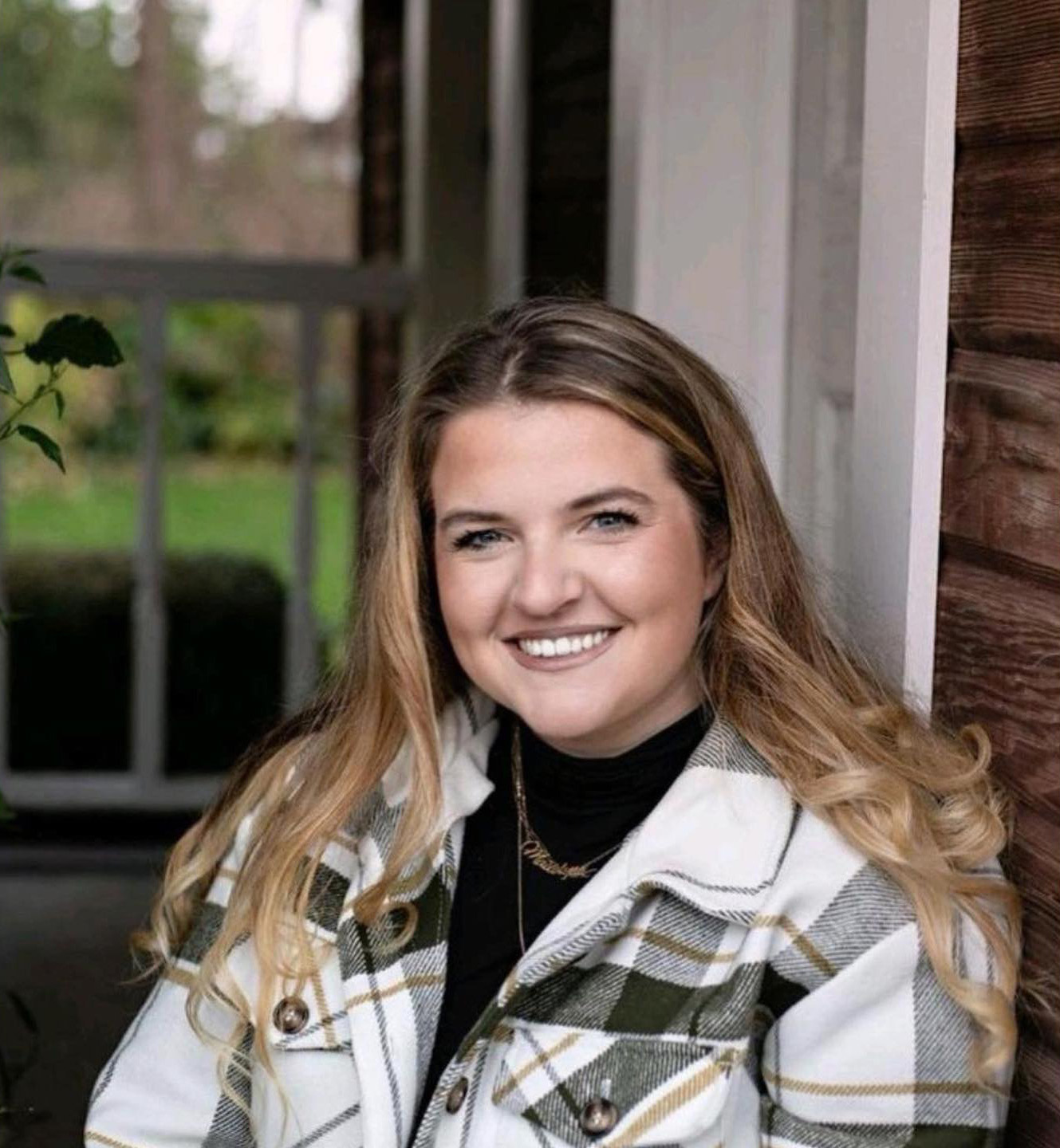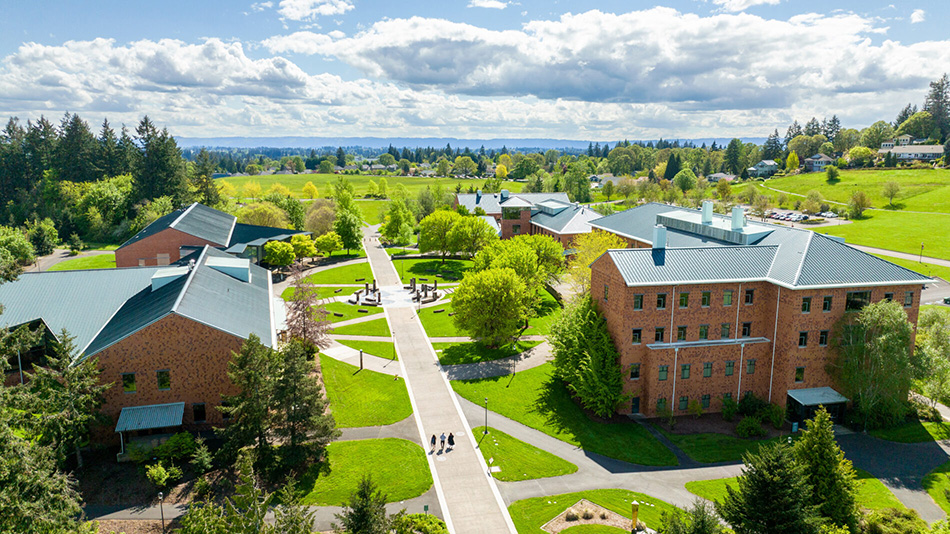The Engaged Scholar Fall 2022
Prioritizing the Student Experience
The Center for Civic Engagement (CCE) is committed to WSU’s strategic plan of prioritizing the student experience. The CCE, in partnership with faculty, students, student affairs colleagues, and community agencies serving the public, design and implement creative models of service-learning together. Throughout the fall semester, the CCE supported over 1,600 students in 46 service-learning classes throughout the Pullman, Global, Tri-Cities, and Vancouver campuses. Additionally, students report service-learning had a positive impact on their personal, professional, and academic growth. The CCE continues to prepare students to be compassionate community members committed to positive social change and equitable communities as they move forward.
The CCE is celebrating its 30th Anniversary next fall! We are looking for innovative project ideas and collaborations! If you are interested in learning more about the CCE’s service-learning program, discussing student success initiatives, or developing new partnerships, feel free to contact us!
-Ben Calabretta, Interim Director
-Jessica Perone, Faculty Consultant
Innovative Partnerships Promoting Wellbeing and Equity

Dongming Zhao and students in AMDT 211 designed and assembled durable bags for students utilizing the Cougar Food Pantry.
Dongming Zhao and students in AMDT 211 designed and assembled durable bags for students utilizing the Cougar Food Pantry.
Over 100 AMDT students designed and assembled large, reusable, denim shopping bags for the students utilizing the Cougar Food Pantry to transport their food and supplies. Manal Shaheen, Dongming Zhao, and students in Apparel Assembly (AMDT 211), Apparel, Draping, Fitting, and Design (AMDT 312), and the Cougar Food Pantry developed a multifaceted course project. The students and faculty used their technical skills and resources to benefit an on-campus partner serving students facing food insecurity. The Cougar Food Pantry is a resource on the WSU Pullman campus and is overseen by Merri Lacoq, the Food Pantry Coordinator at the CCE. Over 1,500 students accessed the Cougar Food Pantry this fall. The pantry stocks non-perishable pantry staples and fresh fruits and vegetables so undergraduate and graduate students can take what they need to create nutritious, filling meals and snacks.
Students supporting their peers to meet their basic needs provides the opportunity to reduce stigma, promote student well-being, normalize seeking assistance, and ensure a supportive living and learning community among students on campus. Prior to this course project, many of the students in the AMDT courses were not aware of the Cougar Food Pantry.
Microsoft.AspNetCore.Mvc.Razor.RuntimeCompilation.CompilationFailedException: One or more compilation failures occurred: W:\web\websites\StudentInvolvement\StudentInvolvement_Umbraco13_PROD\app_plugins\doctypegrideditor\render\doctypegrideditor.cshtml(1,19): error CS0234: The type or namespace name 'DocTypeGridEditor' does not exist in the namespace 'Our.Umbraco' (are you missing an assembly reference?) W:\web\websites\StudentInvolvement\StudentInvolvement_Umbraco13_PROD\app_plugins\doctypegrideditor\render\doctypegrideditor.cshtml(4,26): error CS1061: 'DocTypeGridEditorHelper' does not contain a definition for 'RenderDocTypeGridEditorItem' and no accessible extension method 'RenderDocTypeGridEditorItem' accepting a first argument of type 'DocTypeGridEditorHelper' could be found (are you missing a using directive or an assembly reference?) pfntri3a.oqm(40,16): error CS0246: The type or namespace name 'DocTypeGridEditorHelper' could not be found (are you missing a using directive or an assembly reference?) at Microsoft.AspNetCore.Mvc.Razor.RuntimeCompilation.RuntimeViewCompiler.CompileAndEmit(RazorCodeDocument codeDocument, String generatedCode) at Microsoft.AspNetCore.Mvc.Razor.RuntimeCompilation.RuntimeViewCompiler.CompileAndEmit(String relativePath) at Microsoft.AspNetCore.Mvc.Razor.RuntimeCompilation.RuntimeViewCompiler.OnCacheMiss(String normalizedPath) --- End of stack trace from previous location --- at Microsoft.AspNetCore.Mvc.Razor.RazorViewEngine.CreateCacheResult(HashSet`1 expirationTokens, String relativePath, Boolean isMainPage) at Microsoft.AspNetCore.Mvc.Razor.RazorViewEngine.LocatePageFromPath(String executingFilePath, String pagePath, Boolean isMainPage) at Umbraco.Cms.Web.Website.ViewEngines.ProfilingViewEngine.GetView(String executingFilePath, String viewPath, Boolean isMainPage) at Microsoft.AspNetCore.Mvc.ViewFeatures.HtmlHelper.RenderPartialCoreAsync(String partialViewName, Object model, ViewDataDictionary viewData, TextWriter writer) at Microsoft.AspNetCore.Mvc.ViewFeatures.HtmlHelper.PartialAsync(String partialViewName, Object model, ViewDataDictionary viewData) at AspNetCore.Views_Partials_grid_editors_base.ExecuteAsync() in W:\web\websites\StudentInvolvement\StudentInvolvement_Umbraco13_PROD\Views\Partials\grid\editors\base.cshtml:line 6
The reusable bags reduce the need for one-time plastic bags and allow students to have a durable and large bag for repeated use. A commitment to social change, improved attitudes, enhanced critical-thinking skills, and a deeper understanding of social biases can be attributed to participation in service-learning courses (Conner & Erickson, 2017). Additionally, the service-learning component of these courses provided the students the opportunity to learn more about the Cougar Food Pantry and take action to address and destigmatize food insecurity and social inequities.
Transformative Student Experiences
This fall, the CCE was excited to develop a new partnership with First-Year Programs. The CCE collaborated with Karen Weathermon, Director of First Year Programs, and Cindy Willams, Assistant Director of First-Year Programs and Director of First Year Success Seminar to develop a service-learning component in nine sections of the seminar (UNIV 104). The CCE assisted 177 students with participating in local service-learning projects throughout the semester and led in-class reflection workshops with all nine sections. Implementing a service-learning experience early in a student’s college career has a positive effect on persistence and retention at the institution (Yob, 2014).
Microsoft.AspNetCore.Mvc.Razor.RuntimeCompilation.CompilationFailedException: One or more compilation failures occurred: W:\web\websites\StudentInvolvement\StudentInvolvement_Umbraco13_PROD\app_plugins\doctypegrideditor\render\doctypegrideditor.cshtml(1,19): error CS0234: The type or namespace name 'DocTypeGridEditor' does not exist in the namespace 'Our.Umbraco' (are you missing an assembly reference?) W:\web\websites\StudentInvolvement\StudentInvolvement_Umbraco13_PROD\app_plugins\doctypegrideditor\render\doctypegrideditor.cshtml(4,26): error CS1061: 'DocTypeGridEditorHelper' does not contain a definition for 'RenderDocTypeGridEditorItem' and no accessible extension method 'RenderDocTypeGridEditorItem' accepting a first argument of type 'DocTypeGridEditorHelper' could be found (are you missing a using directive or an assembly reference?) pfntri3a.oqm(40,16): error CS0246: The type or namespace name 'DocTypeGridEditorHelper' could not be found (are you missing a using directive or an assembly reference?) at Microsoft.AspNetCore.Mvc.Razor.RuntimeCompilation.RuntimeViewCompiler.CompileAndEmit(RazorCodeDocument codeDocument, String generatedCode) at Microsoft.AspNetCore.Mvc.Razor.RuntimeCompilation.RuntimeViewCompiler.CompileAndEmit(String relativePath) at Microsoft.AspNetCore.Mvc.Razor.RuntimeCompilation.RuntimeViewCompiler.OnCacheMiss(String normalizedPath) --- End of stack trace from previous location --- at Microsoft.AspNetCore.Mvc.Razor.RazorViewEngine.CreateCacheResult(HashSet`1 expirationTokens, String relativePath, Boolean isMainPage) at Microsoft.AspNetCore.Mvc.Razor.RazorViewEngine.LocatePageFromPath(String executingFilePath, String pagePath, Boolean isMainPage) at Umbraco.Cms.Web.Website.ViewEngines.ProfilingViewEngine.GetView(String executingFilePath, String viewPath, Boolean isMainPage) at Microsoft.AspNetCore.Mvc.ViewFeatures.HtmlHelper.RenderPartialCoreAsync(String partialViewName, Object model, ViewDataDictionary viewData, TextWriter writer) at Microsoft.AspNetCore.Mvc.ViewFeatures.HtmlHelper.PartialAsync(String partialViewName, Object model, ViewDataDictionary viewData) at AspNetCore.Views_Partials_grid_editors_base.ExecuteAsync() in W:\web\websites\StudentInvolvement\StudentInvolvement_Umbraco13_PROD\Views\Partials\grid\editors\base.cshtml:line 6
Service-learning is one high-impact practice of engagement that has been linked directly to student success by helping students develop a sense of belonging and connection to one another and the larger community.
Microsoft.AspNetCore.Mvc.Razor.RuntimeCompilation.CompilationFailedException: One or more compilation failures occurred: W:\web\websites\StudentInvolvement\StudentInvolvement_Umbraco13_PROD\app_plugins\doctypegrideditor\render\doctypegrideditor.cshtml(1,19): error CS0234: The type or namespace name 'DocTypeGridEditor' does not exist in the namespace 'Our.Umbraco' (are you missing an assembly reference?) W:\web\websites\StudentInvolvement\StudentInvolvement_Umbraco13_PROD\app_plugins\doctypegrideditor\render\doctypegrideditor.cshtml(4,26): error CS1061: 'DocTypeGridEditorHelper' does not contain a definition for 'RenderDocTypeGridEditorItem' and no accessible extension method 'RenderDocTypeGridEditorItem' accepting a first argument of type 'DocTypeGridEditorHelper' could be found (are you missing a using directive or an assembly reference?) pfntri3a.oqm(40,16): error CS0246: The type or namespace name 'DocTypeGridEditorHelper' could not be found (are you missing a using directive or an assembly reference?) at Microsoft.AspNetCore.Mvc.Razor.RuntimeCompilation.RuntimeViewCompiler.CompileAndEmit(RazorCodeDocument codeDocument, String generatedCode) at Microsoft.AspNetCore.Mvc.Razor.RuntimeCompilation.RuntimeViewCompiler.CompileAndEmit(String relativePath) at Microsoft.AspNetCore.Mvc.Razor.RuntimeCompilation.RuntimeViewCompiler.OnCacheMiss(String normalizedPath) --- End of stack trace from previous location --- at Microsoft.AspNetCore.Mvc.Razor.RazorViewEngine.CreateCacheResult(HashSet`1 expirationTokens, String relativePath, Boolean isMainPage) at Microsoft.AspNetCore.Mvc.Razor.RazorViewEngine.LocatePageFromPath(String executingFilePath, String pagePath, Boolean isMainPage) at Umbraco.Cms.Web.Website.ViewEngines.ProfilingViewEngine.GetView(String executingFilePath, String viewPath, Boolean isMainPage) at Microsoft.AspNetCore.Mvc.ViewFeatures.HtmlHelper.RenderPartialCoreAsync(String partialViewName, Object model, ViewDataDictionary viewData, TextWriter writer) at Microsoft.AspNetCore.Mvc.ViewFeatures.HtmlHelper.PartialAsync(String partialViewName, Object model, ViewDataDictionary viewData) at AspNetCore.Views_Partials_grid_editors_base.ExecuteAsync() in W:\web\websites\StudentInvolvement\StudentInvolvement_Umbraco13_PROD\Views\Partials\grid\editors\base.cshtml:line 6
Students in service-learning courses have been shown to be more socially active and engaged with their peers (Wolff & Tinney, 2006). The combination of guided critical reflection, community engagement, and academic and social integration are all major contributors to the students' academic, professional, and personal success.
Leadership & Global Service-Learning

Madelyne Vanderkooy
Service-learning as a component of global classes is an important strategy to connect students to global civic issues, cultivate a deeper understanding of course material, and prepare students to be active members of their community post-graduation. With shifts in the global economy and rising food costs directly affecting individuals and families worldwide, the Community Action Center’s (CAC) Community Food Bank and students in the Global Families in Poverty (HD 403) course, taught by Mary Garcia, are acknowledging and responding to this global issue. Global students in this service-learning course made nutrition education more accessible and understandable for all people regardless of income. Students identified, researched, and created recipes using ingredients commonly found in the CAC food bank. The recipe cards included information such as food waste awareness, food safety, nutrition on a budget, and kitchen safety skills.
Madelyne Vanderkooy, 4th year WSU Global student and employee at WSU Skagit County Extension, and Jessica Perone, CCE Faculty Consultant, co-facilitated a conference presentation about service-learning in online classes at the AAC&U Conference, Transforming Global Learning Practice; Time for Action in October. Madelyne was a student in Mary Garcia’s HD 403 Families in Poverty course during the Spring 2022 semester.
Microsoft.AspNetCore.Mvc.Razor.RuntimeCompilation.CompilationFailedException: One or more compilation failures occurred: W:\web\websites\StudentInvolvement\StudentInvolvement_Umbraco13_PROD\app_plugins\doctypegrideditor\render\doctypegrideditor.cshtml(1,19): error CS0234: The type or namespace name 'DocTypeGridEditor' does not exist in the namespace 'Our.Umbraco' (are you missing an assembly reference?) W:\web\websites\StudentInvolvement\StudentInvolvement_Umbraco13_PROD\app_plugins\doctypegrideditor\render\doctypegrideditor.cshtml(4,26): error CS1061: 'DocTypeGridEditorHelper' does not contain a definition for 'RenderDocTypeGridEditorItem' and no accessible extension method 'RenderDocTypeGridEditorItem' accepting a first argument of type 'DocTypeGridEditorHelper' could be found (are you missing a using directive or an assembly reference?) pfntri3a.oqm(40,16): error CS0246: The type or namespace name 'DocTypeGridEditorHelper' could not be found (are you missing a using directive or an assembly reference?) at Microsoft.AspNetCore.Mvc.Razor.RuntimeCompilation.RuntimeViewCompiler.CompileAndEmit(RazorCodeDocument codeDocument, String generatedCode) at Microsoft.AspNetCore.Mvc.Razor.RuntimeCompilation.RuntimeViewCompiler.CompileAndEmit(String relativePath) at Microsoft.AspNetCore.Mvc.Razor.RuntimeCompilation.RuntimeViewCompiler.OnCacheMiss(String normalizedPath) --- End of stack trace from previous location --- at Microsoft.AspNetCore.Mvc.Razor.RazorViewEngine.CreateCacheResult(HashSet`1 expirationTokens, String relativePath, Boolean isMainPage) at Microsoft.AspNetCore.Mvc.Razor.RazorViewEngine.LocatePageFromPath(String executingFilePath, String pagePath, Boolean isMainPage) at Umbraco.Cms.Web.Website.ViewEngines.ProfilingViewEngine.GetView(String executingFilePath, String viewPath, Boolean isMainPage) at Microsoft.AspNetCore.Mvc.ViewFeatures.HtmlHelper.RenderPartialCoreAsync(String partialViewName, Object model, ViewDataDictionary viewData, TextWriter writer) at Microsoft.AspNetCore.Mvc.ViewFeatures.HtmlHelper.PartialAsync(String partialViewName, Object model, ViewDataDictionary viewData) at AspNetCore.Views_Partials_grid_editors_base.ExecuteAsync() in W:\web\websites\StudentInvolvement\StudentInvolvement_Umbraco13_PROD\Views\Partials\grid\editors\base.cshtml:line 6
Students reflected on their contributions and established a sense of belonging to their local communities, WSU campus, and the virtual communities they are members of. Simultaneously, students supported the mission of a community partner and learned more about themselves and the inequities in society.
Student Readiness
The WSU Center for Civic Engagement is excited to facilitate a Community Engaged Scholars fellowship program on May 24 and 25 on the WSU Vancouver campus. By participating in the two-day program, the WSU Vancouver faculty will learn best practices regarding implementing service-learning and exploring options for community engagement in their courses and scholarship. The Community Engaged Scholars fellowship provides ongoing professional development opportunities and mentorship to faculty which is needed to establish, develop, and sustain a diverse community of practice of faculty who are committed to student success.
CCE’s Community Engaged Scholars program is being funded and led in collaboration with Johanna Phelps, Associate Professor, Director of Technical and Professional Writing, Narek Daniyelyan, Assistant Vice Chancellor for Strategic Partnerships, and Thabiti Lewis, Assistant Vice Chancellor for Strategic Partnerships at WSU Vancouver. If you are interested in learning more about the WSUV Community Engaged Scholars fellowship program, contact Jessica Perone at jessica.perone@wsu.edu.
Campus Connection

WSU Vancouver Campus
We love to celebrate the dedication our students have to serving their communities. The CCE’s Community Partnerships (CPA) Team ensures students are connected with amazing community partners to engage with their community and help a huge variety of organizations reach their goals. Over the fall semester, WSU students across the system volunteered with approximately 270 different community organizations. The CCE’s CPA team onboards new partners, assists students with connecting with organizations in their area, and provides support to partners wanting to recruit students via GivePulse, the online community engagement platform used to track students’ service and advertise service opportunities to WSU students, staff, and faculty. You can view the CCE’s interactive Community Partners Map to see all the current partners that students can work with, or are currently working with, across the world.
Engagement News
- Past issues of The Engaged Scholar
- CCE’s Fall 2022 Campus Connection Newsletter
- WSU Students Help Design Areas First ADA Accessible Garden
- SDC Students to Present Gateway Project Designs at Public Reception
- Engineering Projects Focus on Better Senior Living
- 776 people utilized the WSU Pullman Student Voting Hub in November
- Cougar Food Pantry distributed 100 meal boxes to WSU students for Tom’s Turkey Drive. The Cougar Food Pantry is seeking additional donations.
Community Engaged Research Journal Opportunities
Journal of Community Engagement and Scholarship (JCES) invites the submission of manuscripts that relate to its mission: To provide a mechanism through which faculty, staff, and students of academic institutions and their community partners may disseminate scholarly works from all academic disciplines.
References
- Conner, J. (2017). When does service-learning work? Contact theory and service-learning courses in higher education. Michigan Journal of Community Service Learning, 23(2).
- Wolff, M. K., & Tinney, S. M. (2006). Service learning and college student success. The Academic Exchange Quarterly, 10(1), 57-61.
- Yob, I. M. (2014). Keeping students in by sending them out: Retention and service-learning. Higher Learning Research Communications, 4(2), 38-57.